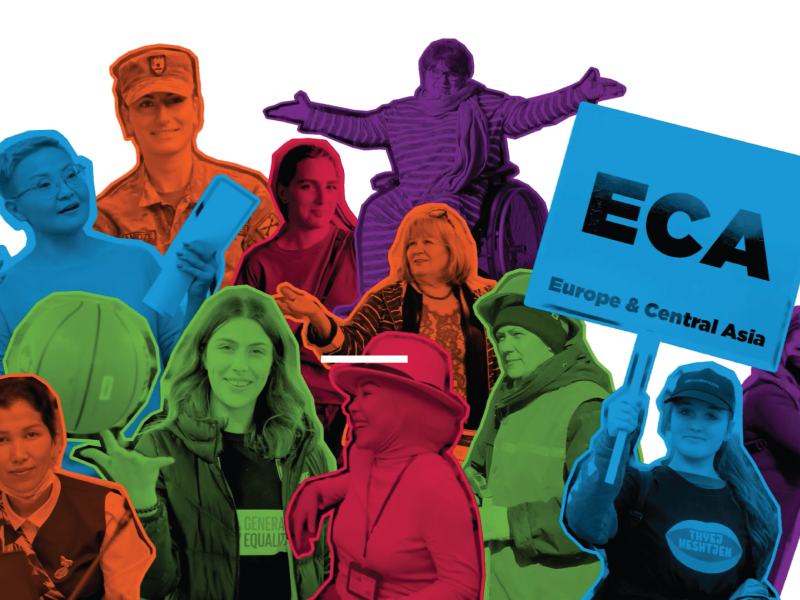Established in 2014, UN Women Europe and Central Asia Regional Office (ECARO) provides support and oversight to Country Offices in Albania, Bosnia and Herzegovina, Georgia, Kazakhstan, Kyrgyzstan, Moldova and Ukraine. In addition, ECARO supports programme and project presences in Kosovo (under UN Security Council Resolution 1244), Serbia, North Macedonia, Tajikistan and Türkiye. ECARO also provides support and is engaged in Armenia, Azerbaijan, Belarus, Montenegro and Uzbekistan. LEARN MORE >
Key focus areas
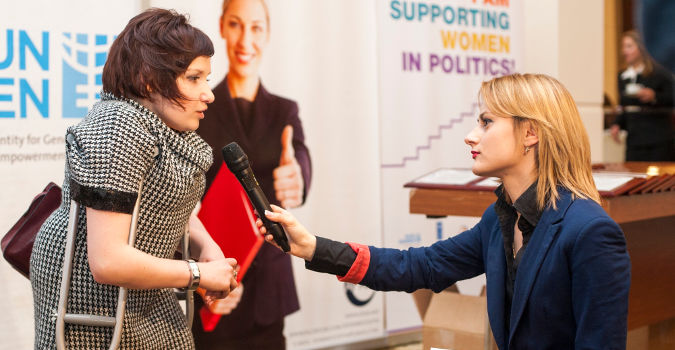
Governance and participation in public life
UN Women supports increased women’s leadership and political participation in Europe and Central Asia by working with governments to implement the Convention on the Elimination of All Forms of Discrimination against Women (CEDAW), support temporary special measures and develop gender-informed policies and supporting civil society actions to promote women’s voting rights and increase women’s political participation, leadership and representation.
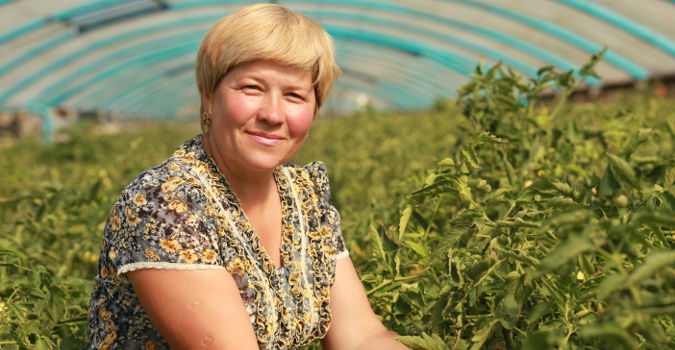
Women’s economic empowerment
To increase women’s economic empowerment, we support initiatives that: promote women’s entrepreneurship and business ownership, with access to loans, capital and financial markets; build women’s assets, by providing women’s access to land rights and property ownership; improve women’s financial literacy; provide better jobs for women, and improve their wages, working conditions and benefits.
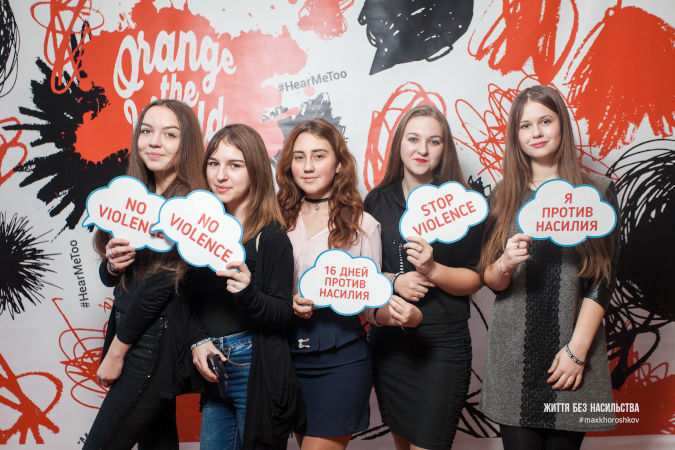
Ending violence against women
Across Europe and Central Asia, UN Women works to prevent and respond to violence against women (VAW) and girls by: supporting initiatives that increase access to services for survivors and make public and private spaces safer for women and girls; partnering with governments, UN agencies, civil society organizations and NGOs to prevent and respond to violence; raising awareness of the causes and consequences of VAW; working to change the attitudes and behaviours that tolerate and perpetuate violence and gender inequality.
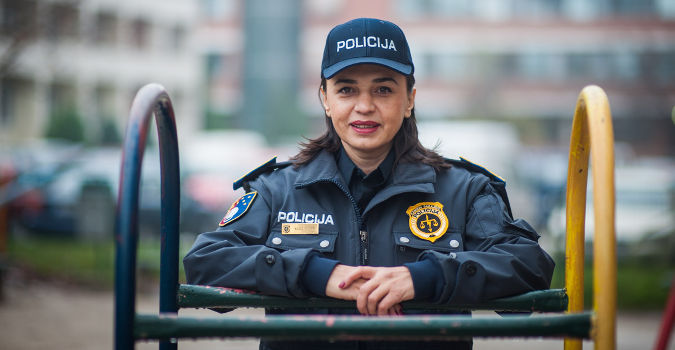
Women, peace and security and humanitarian action
Across Europe and Central Asia, we: foster women’s peace coalitions and prepare them to engage in peace processes; reach out to peacekeepers to detect and stop conflict-related sexual violence; back justice and security institutions that protect women and girls from violence and discrimination; support public services fully responsive to women’s needs that provide women with greater access to economic opportunities and engage them in all forms of national and local public decision-making.
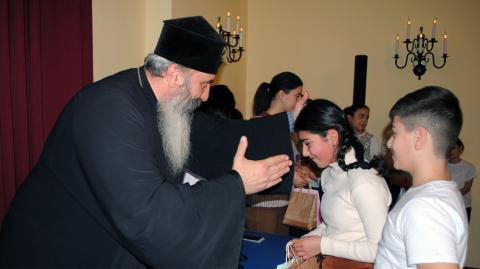
To recognize and fight domestic violence in local communities across Armenia, as well as to engage men in prenatal and postnatal care and responsible fatherhood, a series of trainings have sought to educate and empower priests and social workers of the Armenian Apostolic Holy Church.
“Often, men become more aggressive and resort to violence due to social problems. Through the knowledge we gained via the training, we can address these problems more delicately and deliver the proper approach when counselling families by focusing on men’s engagement in the family and childcare,” says Fr. Mambre Voskanyan, a priest from the Lori region of Armenia. Read more >
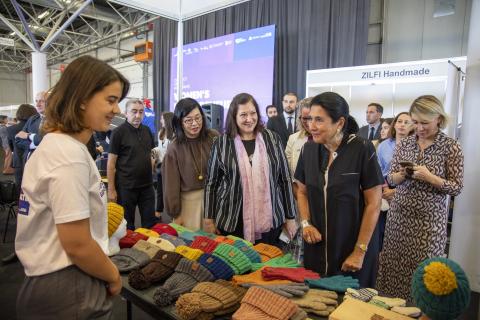
UN Women Georgia hosted the first large-scale exhibition and sale of products and services made by women entrepreneurs on 1-2 October at the Expo Georgia Exhibition Center in Tbilisi. During the two-day event, about 100 participants from all over the country had the opportunity to present their products to the attendees, sell them on the spot and establish connections with potential customers. Read more >
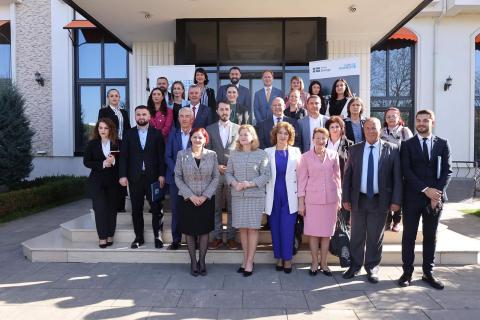
During an official ceremony in Pristina, 15 Municipalities of Kosovo* signed Memorandums of Understanding (MoUs) with UN Women for the advancement of gender responsive budgeting and gender equality at the local level. The MoUs foresee the support of UN Women Kosovo for the signatory municipalities on the integration of a gender perspective in all programs at the local level, the strengthening of the administration's capacities to fulfill the requirements arising from the Law on Gender Equality and the advancement of the gender responsive budgeting (GRB) processes.
*All references to Kosovo on this website should be understood to be in the context of United Nations Security Council Resolution 1244 (1999).
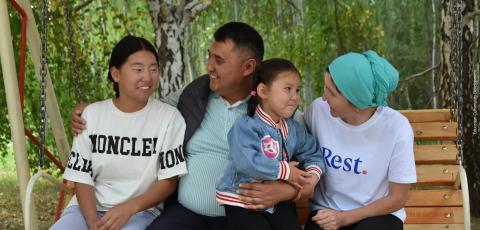
“This is our new family business. Each loaf of bread is made with lots of love because each of us contributes to making it delicious,” enthuses 38-year-old Gulnaz Almambet Kyzy, a new business owner who received Spotlight Initiative-supported gender equality training implemented by UN Women in Kyrgyzstan.
Based on the Gender Action Learning System (GALS), the training aims to reduce violence by talking with communities about the power dynamics in their homes.
According to a 2012 country survey, 50 per cent of men and 34 per cent of women believe that a husband is justified in hitting his wife in certain situations. Further, 27 per cent of women and girls aged 15-49 years old who are married or have ever been married reported experiencing physical or sexual violence by a spouse or partner.

Women experiencing domestic violence often have their access to communication channels restricted by their abusers. Abusers may also regularly control or monitor their communication with the outside world. Existing ways of reporting violence require survivors to have a conversation via telephone or messaging, both of which can be difficult to conceal and may put women at greater risk if their abuser finds out.
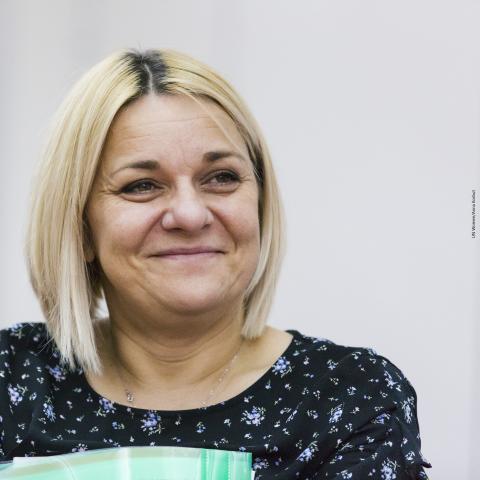
Anastasia Perepylytsia, 44, is no stranger to displacement. In 2014, she had a stable job in finance and lived a normal life together with her husband and two children in Donetsk, eastern Ukraine. But when the Russian army invaded her hometown, she had to flee with her family to Zaporizhzhia, a city situated on the banks of the Dnieper River in the southeast. When the war began in 2022, she had to leave again, relocating to Novovolynsk in western Ukraine. At first, she struggled to find employment, information or psychological support—until she came across UN Women’s ‘Community Mobilization for Empowerment’ project. Now, she is using her experiences of displacement to help others in similar situations adapt.
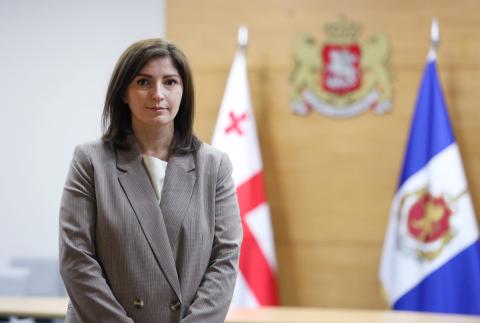
When they interviewed her, the 17-year-old girl was sitting in an armchair, not making eye contact with anyone, recalls Detective Gvantsa Gogava, who investigates domestic violence against juveniles in Georgia.
“When she talked about the perpetrator, who was a family member, she did not use a word for a human being; rather, she used a word for a soulless creature,” recounts Gogava. An experienced investigator, Gogava was used to talking to women and girls suffering from violence and she knew that gaining her trust was fundamental.
“I told her, ‘We believe you.’ That was a milestone that made her feel free,” says Gogava. “Once she felt she could trust us, her body language changed, she made eye contact.” READ MORE >
Key achievements
In 2022, UN Women achieved the following results across Europe and Central Asia:
from 22 countries of the region drafted and shared recommendations ahead of CSW67 at the Generation Equality Europe and Central Asia Youth Forum
in the ECA region including Moldova and Ukraine ratified the Istanbul Convention on preventing and combating violence against women and domestic violence
to localize the Women, Peace and Security (WPS) Agenda were adopted (Georgia and Kyrgyzstan), updated (Ukraine) or drafted (Azerbaijan and Uzbekistan)
across six countries (Armenia, Azerbaijan, Belarus, Georgia, Moldova, and Ukraine) are now local advocates for gender equality and non-discrimination
